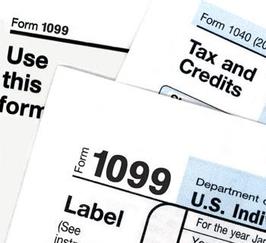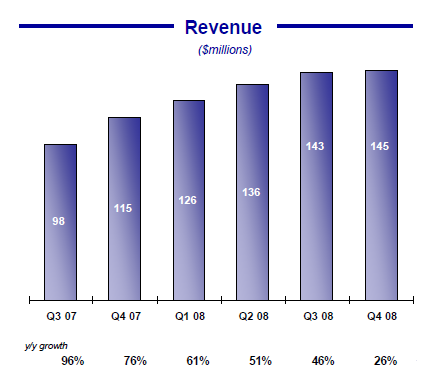 Commonly referred to as the 4th stimulus, the American Rescue Plan created advanced payments of the child tax credit. Unlike the previous three stimulus this, "stimulus" is an advancement of a credit you already receive on your tax return. In 2020 children 0-16 years of age qualified for up to $2,000.00 in child tax credits. In the American Rescue Plan legislation, the amount changed for children 0-5 years of age to $3,600.00, and 6-17 to $3,000.00. So, what is this advance payment? The Internal Revenue Service (IRS) is taking half of the child tax credit (since this is starting in July), respectfully $1,800 or $1,500 depending on which age group your child falls under and dividing it into monthly payments. This is the $250 or $300 payments you have heard about on the news outlets. So, what does this mean for you? What do I need to consider? Times are interesting for a lot of families right now, do you need the monthly income? On your tax return do you normally have a refund or a balance due? Is your income $75,000 for single or $150,000 for married filing joint? Are you sharing a child with the other custodial parent? Why these questions are important? If you need the funds now and funds are tight, these may be a great option for you. If you are alternating years of claiming a child know you can only receive this if you are claiming that child in 2021. This is not like the previous 3 stimulus where both parents receive the funds. If you receive the funds and do not claim the child on your 2021 taxes you will be required to pay it back. Do you receive a refund or balance due? If you normally have a balance due this is only going to add to your balance due as you are receiving one of the credits ahead of time. By how much, depending on the age of the child either $500.00 or $200.00 per child on the return. Is your income over the threshold? This increased payment has limitations. The income threshold is $75,000 for single and $150,000 for married filing joint. If your income is higher than this, you will still qualify for the $2,000.00 child tax credit. However, you will not be eligible for the increased child tax credit. Therefore, in 2020 if your income is below the threshold, but in 2021 you go over the threshold you will be required to pay the increased portion back. Also new with the legislation is that people who normally wouldn't file a tax return are eligible for this credit. However, they are not automatically signed up like those that filed a 2020 return are. To receive these payments go to Many people have concerns with the variances that this credit submits them to. The IRS has created a portal to opt out of this prepayment. However, if you file a joint return, both people must opt out individually. To opt out of the prepayment go to the following link and create an ID.me account. We would suggest doing this from a mobile device, such as a smart phone or tablet. You will need to take pictures of your drivers license and do a live scan of your face. As with any new legislation there are questions and hesitations. Our office will continue to keep up to date on the process of this and other law changes that will affect your 2021 tax return.
1 Comment
 Do you wish you had more time, more money, or perhaps both? This will become reality for millions of workers come December 1, 2016. The Department of Labor (DOL) sounded off on the final notice about the salary floor increasing from $455/week to $913/week. So, what does this mean for you? If you make less than $913/week and on a salary position with your employer you're now required to receive overtime compensation. All those hours of work you've invested over 40/week are about to become extra income for you. This law was passed in hopes to grow the middle class economically. The new law takes effect December 1, 2016. So, what exactly does this mean for employers? Well, employers will either need to adjust their paying positions (moving salary to hourly), raise your salary, or give you some much needed time off. This will effect approximately 4.2 million workers according to the DOL website. With this new law passed we will see automatic salary updates every 3 years. Does this mean your salary will increase every 3 years? Not exactly, the DOL will base the increases upon wage growth with overtime, and the increasing predictability of hours worked by the average American workforce. For more information about the salary increase and how it may affect you please feel free to call our office today (812)258-4002.  Do you have kids and file your return early? Do you receive the Earned Income Credit (EIC) or the Additional Child Tax Credit (ACTC)? If so, you can expect a delay in receiving your refund in 2017. A new law, the Protecting Americans from Tax Hikes Act, passed December 18, 2015 states that, "no credit or refund for an over-payment for a taxable year shall be made to a taxpayer before February 15 if the taxpayer claimed the EIC or ACTC on the return." This new law is just one measurement that the IRS has made to protect the identity and ensure taxpayers only receive the refund they are owed. This law will become effective January 1, 2017. So, what does this mean for you? If you have a child under the age of 17 that qualifies you for the ACTC, $1,000.00 credit or if you receive EIC on your tax return you can still file when you have all of your documentation together. However, the IRS will not release your refund, or a partial refund until Feb. 15th. The IRS still stands that they will be honoring the refunds in less than 21 days if you do not have EIC or ACTC on your return. If you have any additional questions or if you think your return will be effected and you wish to speak with an Enrolled Agent about this, you can call our office at (812)258-4002 ext. 1. References: "no credit or refund for an over-payment for a taxable year shall be made to a taxpayer before February 15 if the taxpayer claimed the EIC or ACTC on the return." (2016, August 22) retrieved from https://www.irs.gov/for-tax-pros/new-federal-tax-law-may-affect-some-refunds-filed-in-early-2017 Many people in our local area our receiving phone calls claiming they are from the IRS. Stating they owe money and are being sued by the IRS. It's important to remember unless you have been dealing with a specific agent, the IRS will NEVER call you. The IRS does not e-mail either. The IRS WILL mail you documents, or show up on your door step. The IRS does NOT have the capability of taking payment over the phone. These are scams created to intimidate you into giving money over the phone. These phone calls come from local and long distant area codes. If you receive a phone call that states you are being sued, please pay a set amount of money please hang up immediately. You can report these incidents at [email protected]. Please provide as much detail information as possible so they IRS can follow up as diligently as they can. If you have experienced monetary losses due to these scams please report this to the Inspector General for Tax Administration at :
https://www.treasury.gov/tigta/contact_report_scam.shtml Many clients have reported that after engaging with these scam artists that they have become very rude, used profanity, and became very belligerent. It's important to record the information they offer directly and hang up. Do NOT give ANY information such as bank account info or social security number over the phone! Many people choose to hire a professional to prepare their tax returns. Even if a professional prepares your return, you are still legally responsible for the accuracy of what is reported. It's very important to choose your tax preparer carefully. Here are some tips that you should look for when making your decision.
Check the preparer's qualifications: Be sure to ask the preparer if they attend continuing education classes, and if they are affiliated with a professional organization. Check on the preparer's history: Check to see if he/she has a questionable history with the Better Business Bureau. Go to the IRS Office of Enrollment and check to see if they have any disciplinary actions and/or licensure status. Service Fees: Be sure to avoid preparers who base their fee on a percentage of your refund, or those who claim they can get you a larger refund than other preparers. Also, be sure that any refund due is sent to you or deposited into an account in your name. Under no circumstances should all or part of your refund be directly deposited into a preparer's bank account. Accessibility: Make sure that you will be able to contact the tax preparer after your return has been filed, even after the April due date. Documentation: Reputable preparers will ask to see your records and receipts and will ask multiple questions to determine accuracy in income and deductions. Do not use a preparer who will is willing to electronically file your return before you receive your W2. The IRS does not allow tax preparation based on your last pay check stub. Blank Returns: NEVER sign a blank return. Review your return, and ask questions as you are legally responsible for what is reported. Copies: Be sure to always receive a copy of the return before it is filed. If you do not receive a copy be sure to request one. Top tips to help you avoid becoming a victim of identity theft:
The IRS will not initiate contact with taxpayers by email, social media channels, text messages or phone calls. If you receive any of these claiming to be from the IRS, forward it to the IRS at [email protected]. Identity thieves can access your personal information by many means, including stealing your wallet or purse, posing as someone who needs information about you through a phone call or email and accessing information your provide to an unsecured internet site. If your SSN is stolen, someone else can use it to get a job. The employer may report that income earned to the IRS, making it appear that you didn't report all of your income on your tax return. If you receive a letter from the IRS stating that more than one tax return was filed for you, or that you received wages for an employer you don't know, your identity may have been compromised. If this occurs, respond immediately to the phone number on the IRS notice. The alternative minimum tax, also known as the AMT tax, is an extra tax some people have to pay in addition to the regular income tax. The AMT now applies to some people who don't have very high income or who don't claim lots of special tax benefits. This tax provides alternative sets of rules for calculating your income tax. These rules help to determine the minimum amount of tax that you will be required to pay. If your regular tax falls below this minimum rate, you will have to make up the difference by paying alternative minimum tax.
|
AuthorPremier Accounting wants to make sure you are up-to-date on the every changing effects of IRS policies. Archives
June 2021
Categories
All
|





